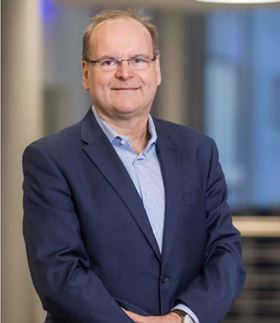 Professor Dr. Alexander Michaelis - 2022 Acta Materialia Hollomon Award Recipient
Professor Dr. Alexander Michaelis - 2022 Acta Materialia Hollomon Award RecipientThe recipient of the 2022 Acta Materialia Hollomon Award for Materials and Society is Professor Dr. Alexander Michaelis, president of Fraunhofer Institute for Ceramic Technologies and Systems IKTS, Dresden, and Full Professor for Ceramics at Technical University of Dresden in Germany.
Professor Michaelis studied physics at the University of Düsseldorf, Germany where he earned his Ph.D. and state doctorate (habil) in materials science and electrochemistry. In 1995 he became faculty member at the University of North Carolina at Chapel Hill, USA working on high temperature superconductors YBCO. In 1996 he switched to Siemens Inc. working as senior process integration engineer in the field of microelectronics in East Fishkill, New York. In 2000, he started to work for the corporate research department of the chemical company Bayer AG in Leverkusen, Germany and the Bayer subsidiary H.C. Starck GmbH, heading the New Business Development department. At that time, he also was appointed as the managing director of the Dutch fuel cell company InDEC BV.
Since 2004, Professor Michaelis is president of Fraunhofer IKTS with more than 800 employees and a yearly budget of over 77 Mio €. Additionally, he is full professor for Ceramics at TU Dresden and has received numerous awards. He is an academician of the “World Academy of Ceramics WAC”, Fellow of the American Ceramic Society (ACerS) and the European Ceramic Society (ECerS). Since 2019 he is also the president of the German Ceramic Society (DKG e.V.) and the FDKG e.V. (Research organization of DKG).
His research covers the entire field of technical ceramics including structural and functional ceramic materials and components. Currently he focuses on battery and fuel cell development (conventional and solid-state Li-Ion batteries, NaNiCl high temperature batteries, solid oxide fuel cells). In the reverse mode SOFC fuel cells can be used for production of green hydrogen. These so called solid oxide electrolysis systems offer an up to 30% higher efficiency in power to hydrogen conversion than competing technologies such as alkaline or PEM electrolysis. Furthermore, SOE is co-electrolysis capable i.e., a direct production of syngas (CO and H2) using environmental CO2 is possible making SOE even CO2 negative. Therefore, SOE technology is ideally suitable for PtX and closed cycle applications.
Professor Michaelis will receive the Acta Materialia Hollomon Award for Materials and Society during the 2022 TMS Spring Meeting to be held in Anaheim, California, February 27 – March 3, 2022.